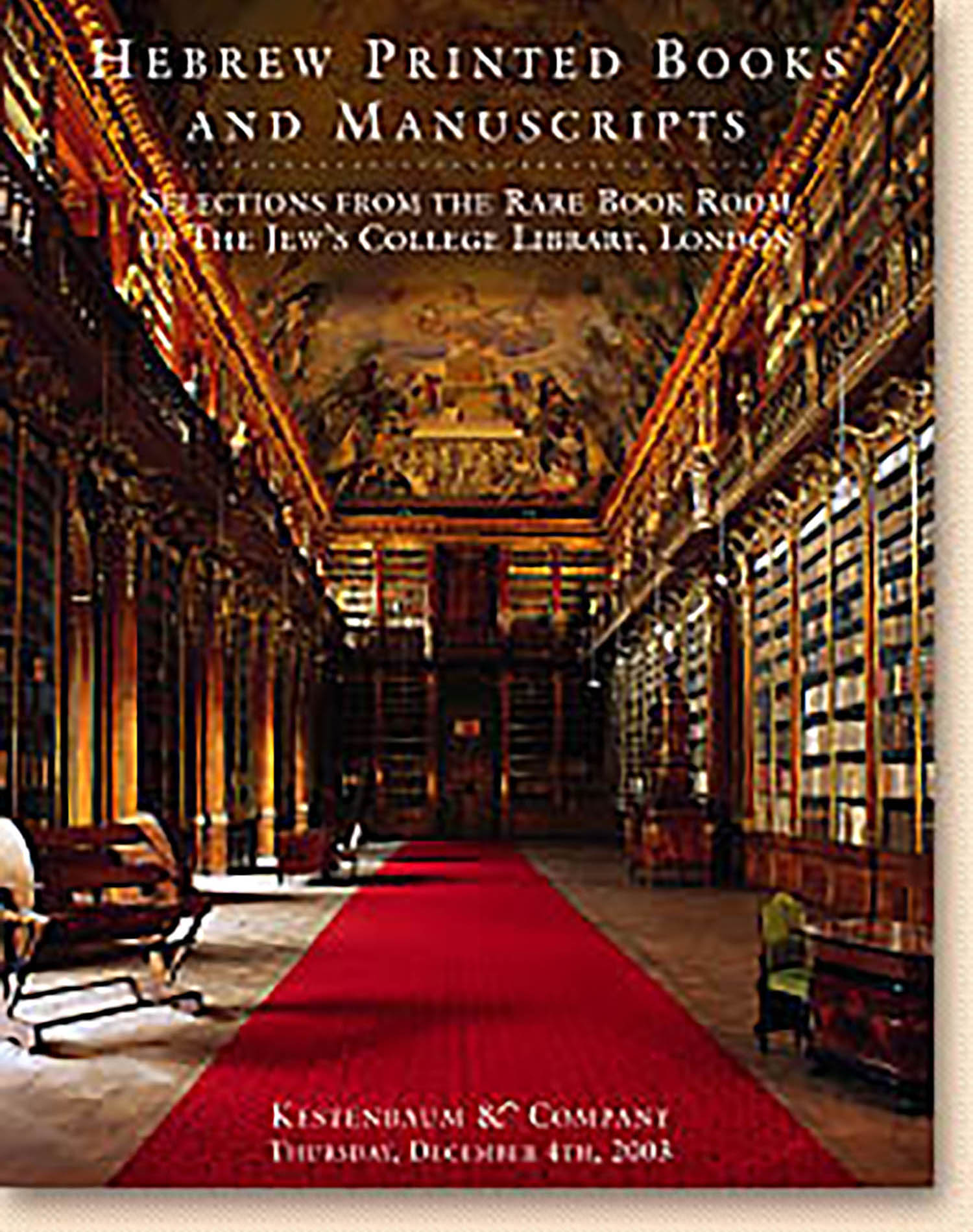Abraham ben Shabthai Hakohen. Kehunath Avraham

AUCTION 21 |
Thursday, December 04th,
2003 at 1:00
Kestenbaum & Company Holds Inaugural Auction of Hebrew Printed Books & Manuscripts at Their New Galleries
Lot 202
(POETRY)
Abraham ben Shabthai Hakohen. Kehunath Avraham
Venice: Bragadin 1719
Est: $1,200 - $1,800
PRICE REALIZED $1,200
A poetical paraphrase of the Psalms, to which is appended “Benei Keturah,” rhymed verses to Perek Shirah. The author, a native of Zante, one of the Ionian isles of Greece, then part of the Venetian Republic, issued this work with a most uncommon engraved self-portrait. See A. Rubens, A Jewish Iconography (1981), no. 8. According to Cecil Roth, Cohen was probably responsible for the other engravings in the book as well.
A rare copy, complete with all title pages and engravings.
Part of the diatribe against Rabbi Moses Hayim Luzzatto (RaMHaL) was that he had composed his own Psalms, which it was asserted by his enemies, were designed to usurp those of King David. Actually, in Italy in that period of the early eighteenth century, this was a genre taken up by several talented poets. It was not considered a sacrilege to compose one’s own psalms. Witness the encomia to our work by Rabbi Joseph Piameta of Ancona; the rabbis of Venice, Moses Hakohen and Isaac Pacifico; and Jacob ben Samuel Aboab. Meir Benayahu has shown that Luzzatto was influenced by the circle of physician-poets in his native Padua, which included Abraham Hakohen of Zante. Another poetic influence on young Luzzatto was Isaac Hayim Kohen min ha-Hazanim (YeHKaM) or Cantarini, who devoted a lifetime to composing “psalms.” See “R. Abraham Hakohen of Zante and the circle of physician-poets in Padua,” Ha-Sifrut, 26(5738/1978):115; Meir Benayahu, Kabbalistic Writings of R. Moses Hayyim Luzzatto (Jerusalem, 1979), p. 239.
